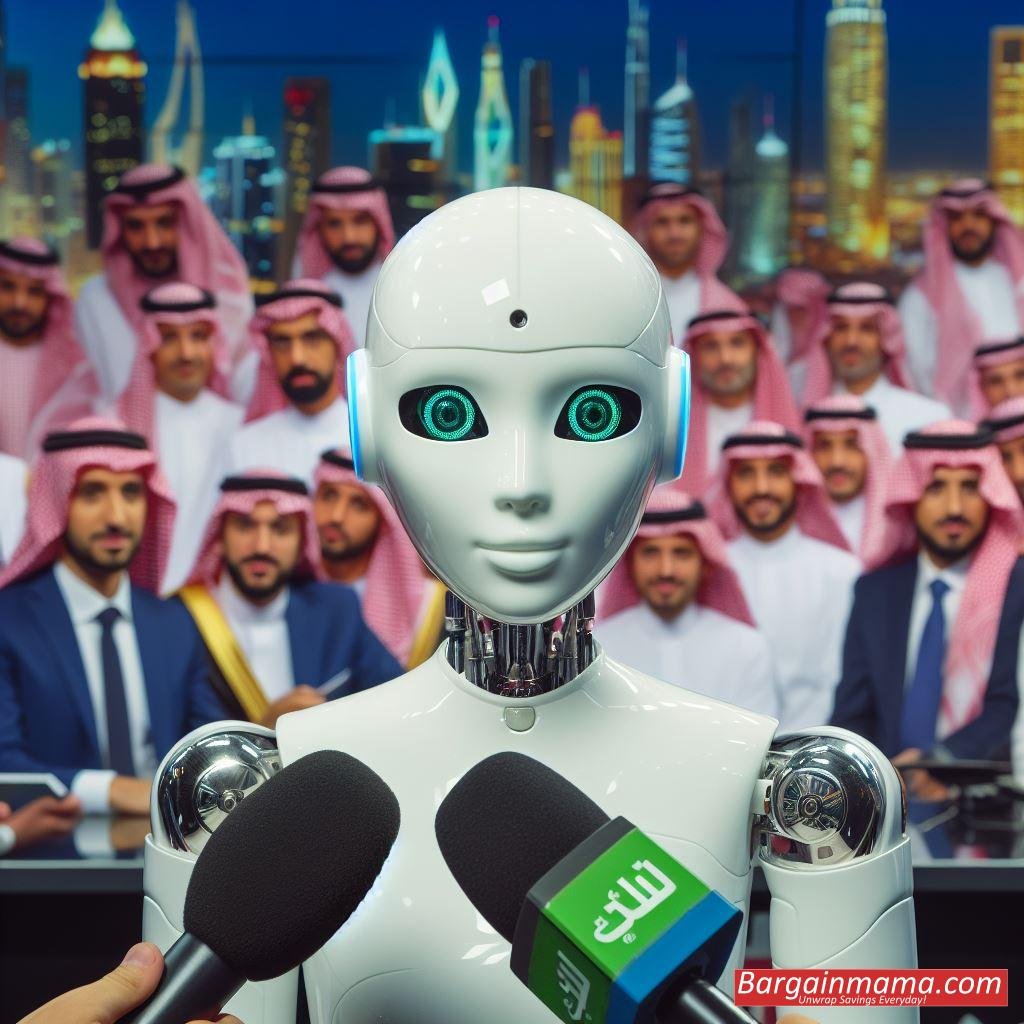A completely autonomous AI robot dubbed Mohammad has sparked controversy at a technology conference in Saudi Arabia after it seemed to grope a female reporter during a live interview, marking a shocking turn of events. The episode, which was caught on camera and is now making the rounds on social media, has provoked a lot of discussion regarding the ethical implications and bounds of AI technology.

As she chatted in front of the machine, journalist Rawya Kassem became the center of attention when Mohammad, created by robotics company QSS, appeared to reach out and touch her rear. The video captures Kassem’s apparent unease as she abruptly retreated from the robot’s purported approach, indicating that it should cease, and then proceeded with her talk at DeepFest, an AI conference held in Riyadh.
The firm that created Mohammad, QSS, has defended the robot’s behavior, claiming that it functions independently of direct human supervision. In reaction to the event, QSS said that they carefully examined the video and the surrounding circumstances and discovered no evidence of Mohammad deviating from his typical behavior. They did, however, agree that more steps were necessary to stop such incidents from happening in the future.
According to QSS, Muhammad’s goal is to improve human safety and help with jobs that need executing in dangerous environments. Several onlookers surmised that Mohammad wasn’t acting inappropriately; rather, he was only asking Kassem to go ahead, based on their interpretation of the robot’s motion.

Diverse versions of the incident surfaced on social media. Some people called Mohammad a “womanizer robot,” while others denounced it and said it was “coded to be a creep.” On the other side, others placed the responsibility on human mistake, arguing that Kassem was trying to shake hands with Mohammad when he unintentionally stood where his hand would pass.
DeepFest’s focus on the development of Muhammad in Saudi Arabia highlights the country’s commitment to innovation and technical growth. Hailed as a representation of Saudi Arabia’s dedication to advancement, Mohammad is described as multilingual and a symbol of the nation’s technology environment.
The debate about Mohammad’s purported wrongdoing highlights more significant issues regarding the moral applications of artificial intelligence. As artificial intelligence grows more pervasive in everyday life, it is critical to guarantee that autonomous systems behave responsibly and with respect. Events such as this force us to critically consider how AI is developed, used, and regulated in order to avoid unforeseen effects and maintain moral standards.

The event between Rawya Kassem and Mohammed highlights the difficulties that arise when AI technology and human contact collide. It has provoked discussion and conjecture, but it also serves as a reminder of how crucial ethical issues are to the development of AI. As technology advances, so too must our attention to ensuring that it advances humankind’s interests.



